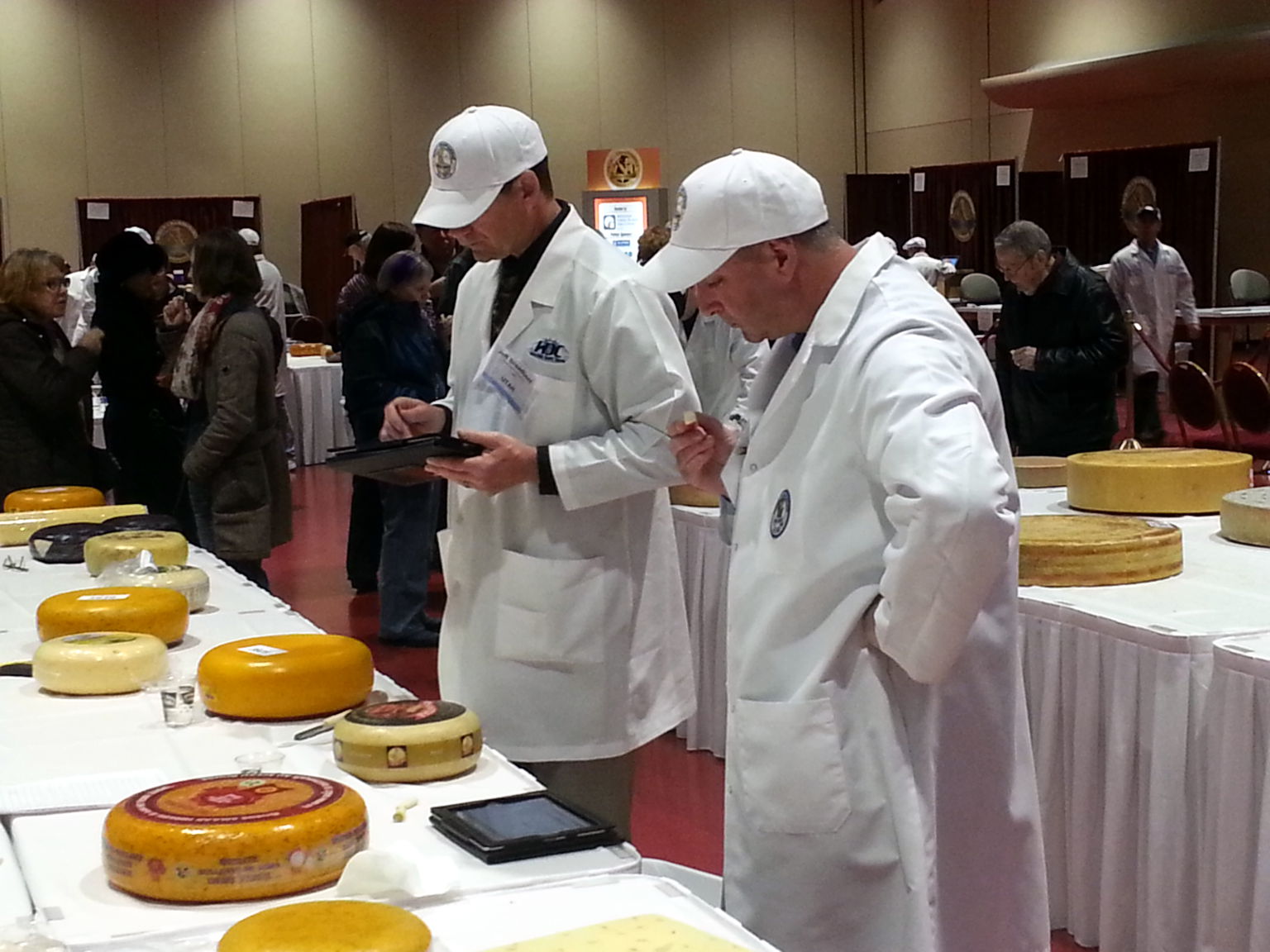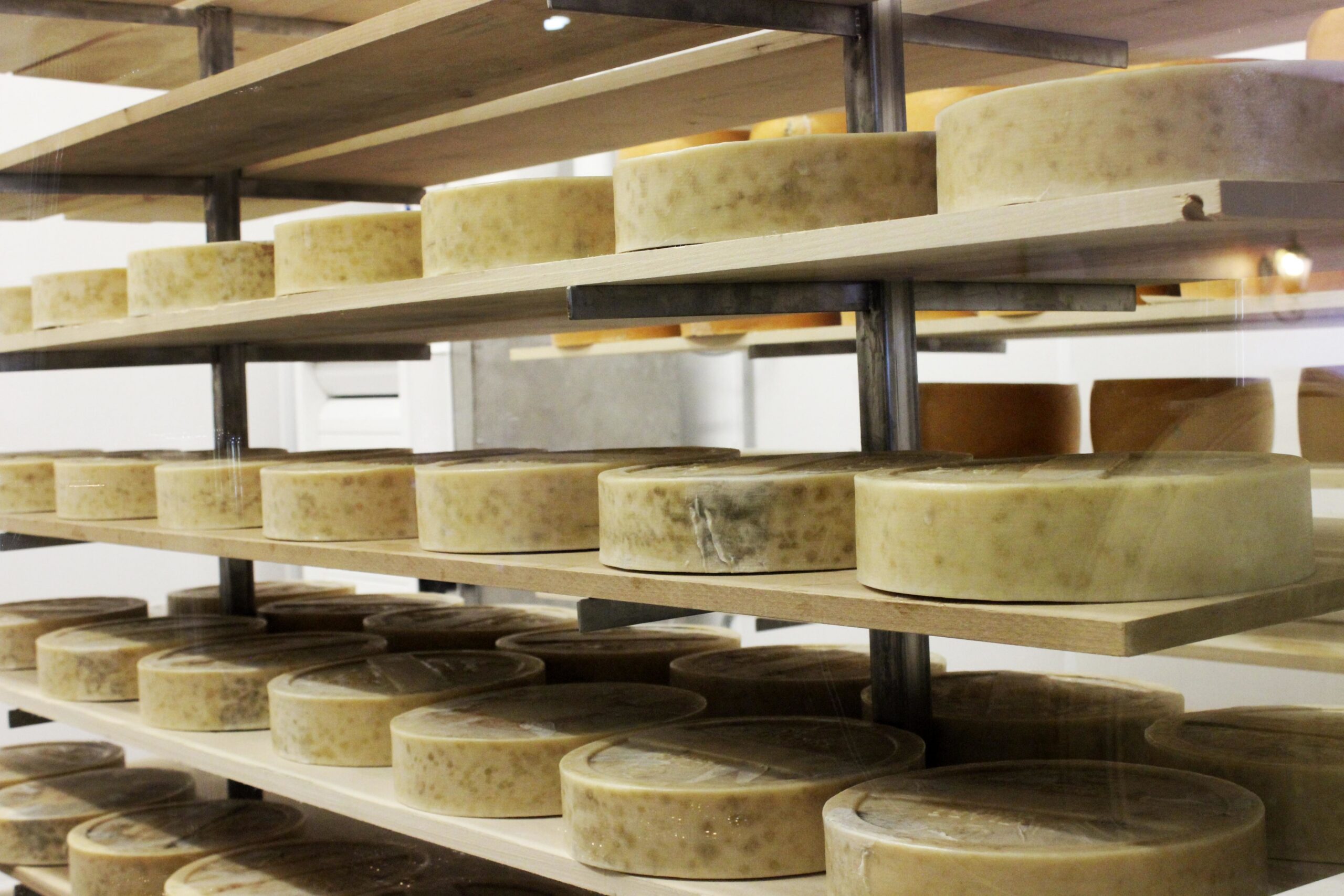Between sampling havarti, Parmesan, and feta at the World Championship Cheese Contest in Madison this week, Wisconsin’s cheese makers are wondering if their prized cheeses will have to go by a new name at the next competition.
As part of ongoing trade negotiations, the European Union wants U.S. cheese makers to stop naming their products after cheeses associated with Europe. The EU says placing geographical indication restrictions on names — like Gorgonzola, Gouda, and Muenster — protect regions economically and culturally.
Dominique Delugeau is the senior vice president of sales and marketing with Saputo Cheese USA, based in Richfield. He says some cheeses should be protected, but products like Parmesan and Asiago are generic names in the U.S.
Stay informed on the latest news
Sign up for WPR’s email newsletter.
“[Protecting] well-defined, geographically- or historically-based products is a good thing,” he said, “but common names? No, absolutely not.”
Saputo’s headquarters are in Canada, where companies have already had to change their labels. Delugeau says its Asiago cheeses sold in Canada are now labeled “Asiago-style,” which he says, has created problems.
Luke Buholzer is the Klondike Cheese Company’s vice president of sales and part of the fourth generation of the Monroe-based company. He says educating consumers on cheese names would be difficult and costly.
“People know what feta is. They know what Muenster is,” Buholzer said. “If all the sudden I couldn’t call my feta ‘feta,’ I had to call it ‘white brine cheese,’ I have to go out and educate all my consumers that my ‘white brine cheese’ is what you think of as ‘feta.’”
Fifty-five U.S. senators, including Wisconsin’s Tammy Baldwin and Ron Johnson, recently signed a letter opposing the cheese name and trade restrictions.
Wisconsin Public Radio, © Copyright 2025, Board of Regents of the University of Wisconsin System and Wisconsin Educational Communications Board.



